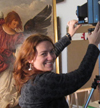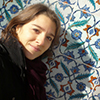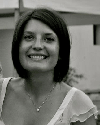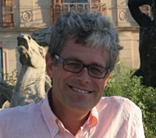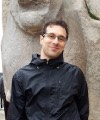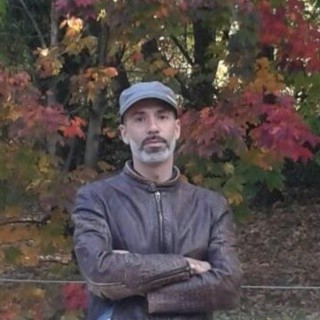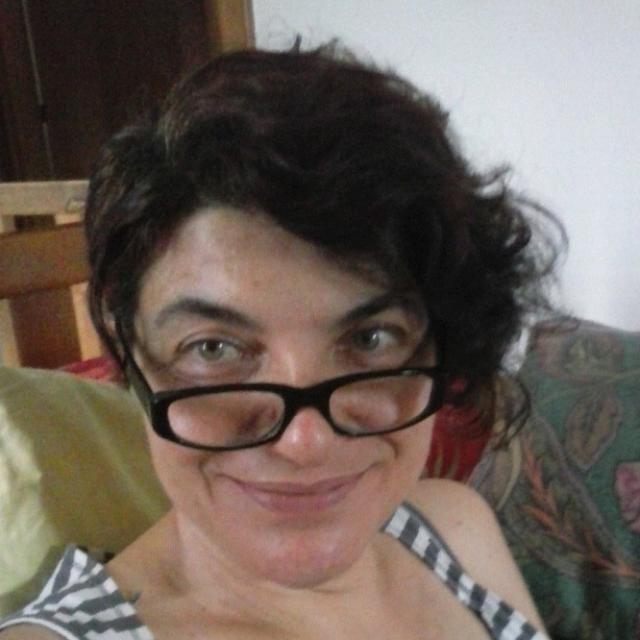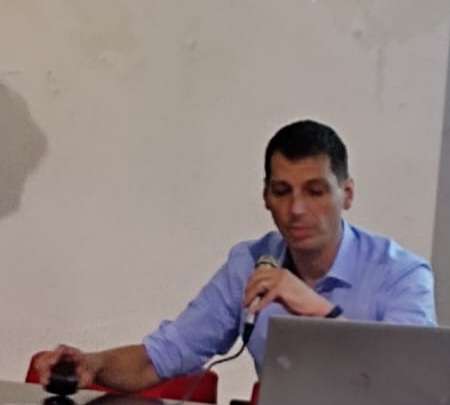Studying at the University of Verona
Here you can find information on the organisational aspects of the Programme, lecture timetables, learning activities and useful contact details for your time at the University, from enrolment to graduation.
Academic calendar
The academic calendar shows the deadlines and scheduled events that are relevant to students, teaching and technical-administrative staff of the University. Public holidays and University closures are also indicated. The academic year normally begins on 1 October each year and ends on 30 September of the following year.
Course calendar
The Academic Calendar sets out the degree programme lecture and exam timetables, as well as the relevant university closure dates..
| Period | From | To |
|---|---|---|
| CuCi IA | Sep 21, 2020 | Oct 31, 2020 |
| CuCi IB | Nov 9, 2020 | Jan 9, 2021 |
| CuCi IIA | Feb 15, 2021 | Apr 1, 2021 |
| CuCi IIB | Apr 14, 2021 | May 29, 2021 |
| Session | From | To |
|---|---|---|
| sessione d'esame invernale CuCi | Jan 11, 2021 | Feb 13, 2021 |
| sessione d'esame estiva CuCi | Jun 7, 2021 | Jul 24, 2021 |
| sessione d'esame autunnale CuCi | Aug 23, 2021 | Sep 18, 2021 |
| Session | From | To |
|---|---|---|
| sessione di laurea invernale 19-20 | Apr 7, 2021 | Apr 13, 2021 |
| sessione di laurea estiva 20-21 | Jul 5, 2021 | Jul 10, 2021 |
| Sessione autunnale di laurea a.a. 2020/21 | Nov 8, 2021 | Nov 13, 2021 |
| Sessione straordinaria di laurea a.a. 2020/21 | Mar 28, 2022 | Apr 2, 2022 |
| Period | From | To |
|---|---|---|
| Festa di Ognissanti | Nov 1, 2020 | Nov 1, 2020 |
| Chiusura Ateneo ponte Immacolata | Dec 7, 2020 | Dec 7, 2020 |
| Festa dell'Immacolata | Dec 8, 2020 | Dec 8, 2020 |
| Vacanze di Natale | Dec 24, 2020 | Jan 6, 2021 |
| Vacanze di Pasqua | Apr 2, 2021 | Apr 6, 2021 |
| Festa della liberazione | Apr 25, 2021 | Apr 25, 2021 |
| Festa del lavoro | May 1, 2021 | May 1, 2021 |
| Festa del Santo Patrono | May 21, 2021 | May 21, 2021 |
| Sospensione delle lezioni | May 22, 2021 | May 22, 2021 |
| Festa della Repubblica | Jun 2, 2021 | Jun 2, 2021 |
| Vacanze estive | Aug 9, 2021 | Aug 15, 2021 |
Exam calendar
Exam dates and rounds are managed by the relevant Culture and Civilisation Teaching and Student Services Unit.
To view all the exam sessions available, please use the Exam dashboard on ESSE3.
If you forgot your login details or have problems logging in, please contact the relevant IT HelpDesk, or check the login details recovery web page.
Should you have any doubts or questions, please check the Enrollment FAQs
Academic staff

Bassetti Massimiliano
 massimiliano.bassetti@univr.it
massimiliano.bassetti@univr.it
 045802 8376
045802 8376
 riccardo.bertolazzi@univr.it
riccardo.bertolazzi@univr.it
 stefania.cretella@univr.it
stefania.cretella@univr.it
 dario.donetti@univr.it
dario.donetti@univr.it
 vincenzo.giannotti@univr.it
vincenzo.giannotti@univr.it
 piergiovanna.grossi@univr.it
piergiovanna.grossi@univr.it
 elisa.lerco@univr.it
elisa.lerco@univr.it
 francesco.lupi@univr.it
francesco.lupi@univr.it

Mastrocinque Attilio
 attilio.mastrocinque@univr.it
attilio.mastrocinque@univr.it
 +39 045802 8386
+39 045802 8386
 marco.menato@univr.it
marco.menato@univr.it
 alberto.scandola@univr.it
alberto.scandola@univr.it
 cecilia.sideri@univr.it
cecilia.sideri@univr.it
 carlo.vannini@accademiabelleartiverona.it
carlo.vannini@accademiabelleartiverona.it
Study Plan
The Study Plan includes all modules, teaching and learning activities that each student will need to undertake during their time at the University.
Please select your Study Plan based on your enrollment year.
1° Year
| Modules | Credits | TAF | SSD |
|---|
1 module to be chosen among the following2° Year activated in the A.Y. 2021/2022
| Modules | Credits | TAF | SSD |
|---|
1 module to be chosen among the following2 modules to be chosen among the following3 modules to be chosen among the following3° Year activated in the A.Y. 2022/2023
| Modules | Credits | TAF | SSD |
|---|
1 module to be chosen among the following1 module to be chosen among the following3 modules to be chosen among the following| Modules | Credits | TAF | SSD |
|---|
1 module to be chosen among the following| Modules | Credits | TAF | SSD |
|---|
1 module to be chosen among the following2 modules to be chosen among the following3 modules to be chosen among the following| Modules | Credits | TAF | SSD |
|---|
1 module to be chosen among the following1 module to be chosen among the following3 modules to be chosen among the following| Modules | Credits | TAF | SSD |
|---|
Legend | Type of training activity (TTA)
TAF (Type of Educational Activity) All courses and activities are classified into different types of educational activities, indicated by a letter.
Type D and Type F activities
| years | Modules | TAF | Teacher |
|---|---|---|---|
| 1° 2° 3° | Castelvecchio Lectures (City Art Museums) | F |
Alessandra Zamperini
(Coordinator)
|
| 1° 2° 3° | C.T.G. Lectures | F |
Alessandra Zamperini
(Coordinator)
|
| 1° 2° 3° | Giornata mondiale della poesia | F |
Arnaldo Soldani
(Coordinator)
|
| 1° 2° 3° | Giovedì' culturali dell'ISSR I ciclo | F |
Tiziana Franco
(Coordinator)
|
| 1° 2° 3° | The Unesco World Heritage Sites | F |
Silvana Bianchi
(Coordinator)
|
| 1° 2° 3° | Il testo en abyme: rappresentazioni della scrittura nell’Europa romantica - Convegno internazionale del CRIER - 5-6 novembre 2020 | F |
Corrado Viola
(Coordinator)
|
| 1° 2° 3° | Orientaday | F |
Tiziana Franco
(Coordinator)
|
| years | Modules | TAF | Teacher |
|---|---|---|---|
| 1° 2° 3° | Castelvecchio Lectures (City Art Museums) | F |
Alessandra Zamperini
(Coordinator)
|
| 1° 2° 3° | Convegno su carlo gozzi nel terzo centenario della nascita | F |
Nicola Pasqualicchio
(Coordinator)
|
| 1° 2° 3° | C.T.G. Lectures | F |
Alessandra Zamperini
(Coordinator)
|
| 1° 2° 3° | Giovedì' culturali dell'ISSR I ciclo | F |
Tiziana Franco
(Coordinator)
|
| 1° 2° 3° | How to write your dissertation | F |
Alessandro Arcangeli
(Coordinator)
|
| years | Modules | TAF | Teacher | |
|---|---|---|---|---|
| 1° | Introduction to the study of decorative arts | F |
Valerio Terraroli
(Coordinator)
|
|
| 1° 2° 3° | Attivita' FAI | F | Not yet assigned | |
| 1° 2° 3° | Practical exercises for the recognition of works of art | - |
Enrico Dal Pozzolo
(Coordinator)
|
|
Protohistory (i) (2021/2022)
Teaching code
4S004608
Teacher
Coordinator
Credits
6
Also offered in courses:
- Protohistory (i) of the course Bachelor’s degree in Humanities
Language
Italian
Scientific Disciplinary Sector (SSD)
L-ANT/01 - PREHISTORY AND EARLY HISTORY
Period
2 A dal Feb 14, 2022 al Mar 26, 2022.
Learning outcomes
Aims and objectives of the course • To provide an advanced methodological knowledge and a general overview of the subject of study. • To stimulate a critical analysis of the material useful to the reconstruction of the proto-historic world, at different complexity levels: the artefacts; the sites in the landscape and in their organization; the economic, social, political and ideological organization. • To provide an advanced knowledge in the archaeology of Northern Italy from the early Bronze Age to the Romanization. • To underline the relationship between Proto-historic Northern Italy and other areas (Northern and Central Europe, Italic and Mediterranean world). • To engage students with the material and resources related to the study themes that are present in the surrounding area
Program
The course surveys the dramatic changes that emerged from the Copper Age to the end of the first millennium B.C. in the human relationship with the environment and in the social organization of human societies, in North-Eastern Italy especially but also in the broader framework of Europe to the North, of central and southern Italy, the Aegean and Mediterranean world to the South. The evolution over time of artefacts, settlements and economic, social and cultural organization is explained also through case studies. A part of the course is devoted to the methodology and the interpretation of prehistoric research.
Unit 1
Introduction to Proto-history. Sources and chronology.
The spread of metallurgy and the consequent economic and social changes.
Unit 2
The Copper age. The emergence of the metallurgic technology: available data.
The emergence of a new human-environment relationship. Changes in cultural, economic and social organization.
Unit 3
The Bronze age: available archaeological data.
Changes in the settlement system and in the cultural, economic and social organization.
The pile-dwellings: organization and exchanges.
Unit 4
Terramare and castellieri: a great transformation in the landscape.
Archaeological data.
Changes in the settlement system and in the cultural, economic and social organization
Unit 5
The collapse of the terramare system and the spread of a new world.
The Early Iron age: introduction to the iron metallurgy.
Archaeological data.
Changes in the settlement system and in the cultural, economic and social organization
The emergence of the early urban centers.
Unit 6
The Late Iron age: archaeological data.
The emergence of writing and of ethnic definition.
Changes in the settlement system and in the cultural, economic and social organization.
Bibliography
Examination Methods
The aim of the examination is to check the achievement of the educational objectives already described.
The examination will be an oral interview. In the first step, the student will describe and further develop a topic or a case study connected to the programme that she/he has freely chosen; some questions will verify the knowledge and comprehension of the programme, as far as both methods and contents are concerned.
Due to the Coronavirus pandemic, and in accordance with the University of Verona guidelines, the assessment modality can be modified as follows: online oral exam.
Career prospects
Module/Programme news
News for students
There you will find information, resources and services useful during your time at the University (Student’s exam record, your study plan on ESSE3, Distance Learning courses, university email account, office forms, administrative procedures, etc.). You can log into MyUnivr with your GIA login details: only in this way will you be able to receive notification of all the notices from your teachers and your secretariat via email and also via the Univr app.
Graduation
List of thesis proposals
| theses proposals | Research area |
|---|---|
| Ambiti di tesi | Art & Architecture - Art & Architecture |

